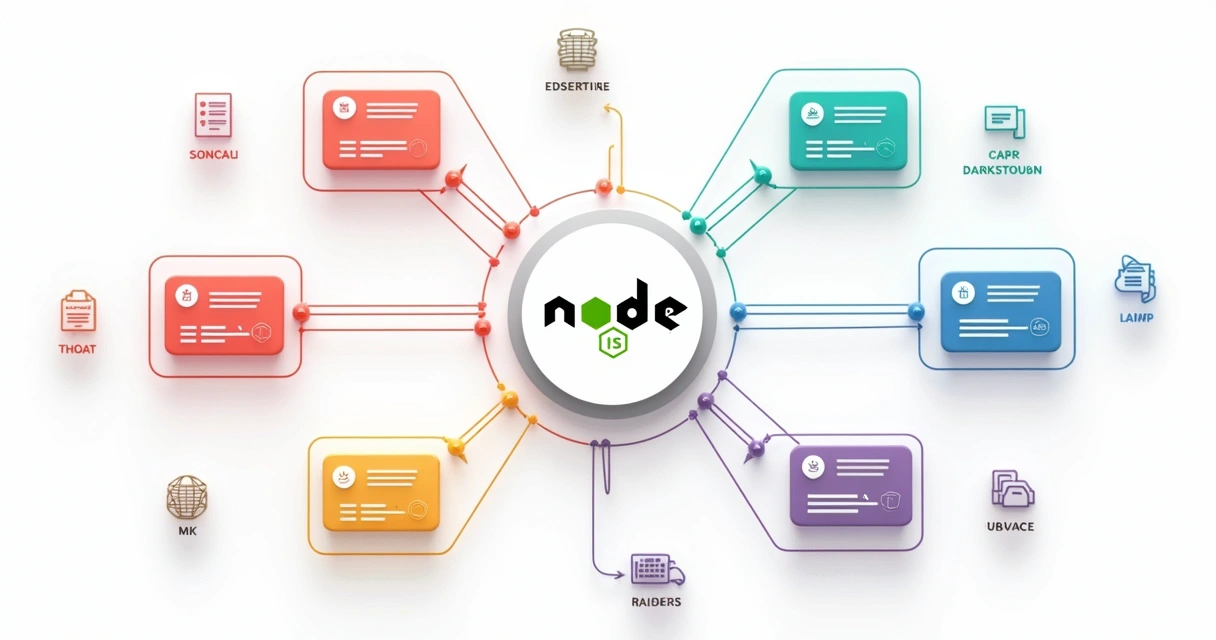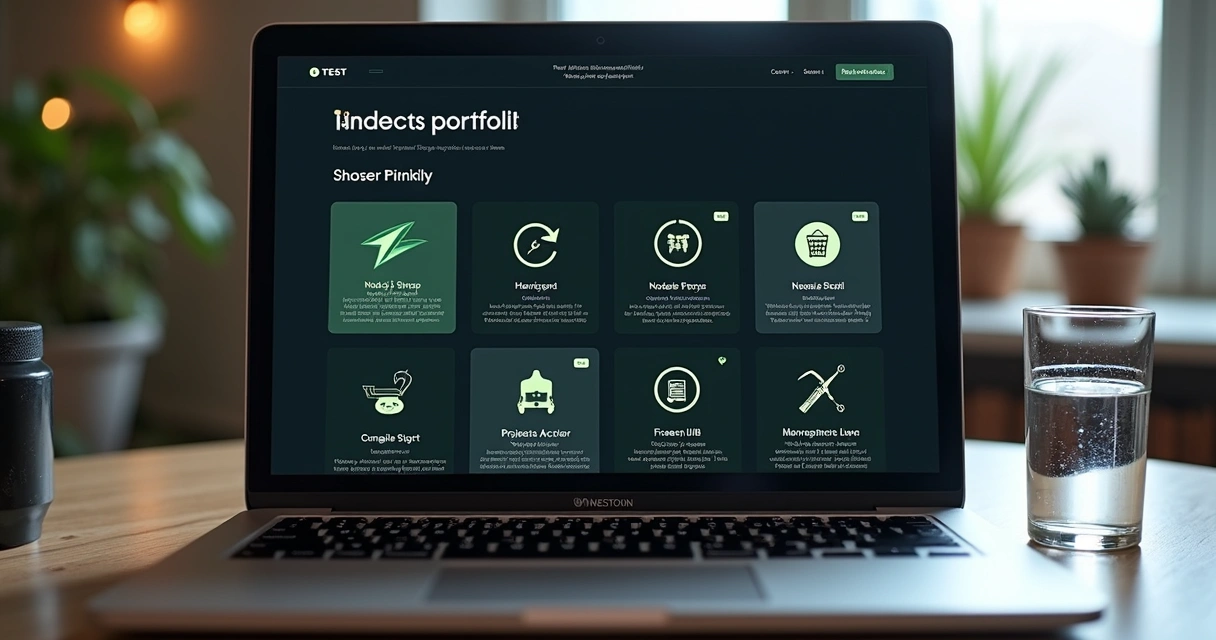The demand for flexible expertise in backend and full-stack development has never been higher. Companies want agility, scalability, and fast time to market. Node.js stands at the center of this trend, powering microservices, real-time features, and cloud-native platforms everywhere. There’s a reason you landed here: you want that edge. In my experience building software for over sixteen years as a developer and digital nomad, I have seen too many projects thrive—or flounder—based on who wrote the code.If you’re searching for guidance on how to hire a top-tier freelance Node.js developer and achieve reliability and scalability, you’re in the right place. I’ll walk you through technical skills to look for, practical interview tips, red flags, and, perhaps, the less-obvious keys to a lasting collaboration that gets results.
Why the freelance Node.js developer matters for scalability
Businesses now demand applications that perform well at scale, run reliably in the cloud, and adapt fast as demands shift. According to projections by the U.S. Bureau of Labor Statistics, software developer employment is set to grow by 22% from 2020 to 2030—a far faster pace than the average. A big part of that growth is fueled by companies tapping into freelance and remote work pools, especially for specialized roles such as Node.js developers.
Node.js isn’t just fast—it’s built for real-time and scale from the ground up.
 But why freelance? The U.S. Census Bureau recently reported that 36% of U.S. employees now work remotely at least part-time. That’s not an accident. Remote and freelance strategies give businesses the reach to hire top talent and the nimbleness to adapt as project needs evolve. For Node.js projects, which so often drive real-time APIs, chat systems, serverless functions, and event-driven apps, finding a reliable freelancer can mean the difference between downtime and market leadership.
But why freelance? The U.S. Census Bureau recently reported that 36% of U.S. employees now work remotely at least part-time. That’s not an accident. Remote and freelance strategies give businesses the reach to hire top talent and the nimbleness to adapt as project needs evolve. For Node.js projects, which so often drive real-time APIs, chat systems, serverless functions, and event-driven apps, finding a reliable freelancer can mean the difference between downtime and market leadership.
I’ve helped clients scale from zero users to millions. If you intend to build high-concurrency applications, integrate AI features, or architect resilient backend systems, a freelance Node.js developer who knows these waters is a game-changer.
Core responsibilities of a skilled Node.js freelancer
Every Node.js assignment is a little different—I know this from hands-on experience—but most share a few core responsibilities. If you’re hiring, these are the tasks you’ll want your developer to handle:
- Designing and implementing robust backend systems.
- Building and documenting scalable RESTful and GraphQL APIs.
- Creating microservices architectures for modular, maintainable codebases.
- Using npm and third-party modules wisely—knowing when to extend and when to write from scratch.
- Ensuring code quality through automated testing, peer review, and clear documentation.
- Deploying to cloud environments (AWS, Azure, Google Cloud), including serverless options like AWS Lambda.
- Monitoring, profiling, and troubleshooting performance and security issues.
- Collaborating remotely with product owners, designers, QA, and sometimes other developers.
In more advanced projects, a freelance Node.js developer should handle:
- Integrating real-time features (WebSockets for chat, live updates, or data feeds).
- Architecting for horizontal scaling—load balancing, stateless services, and sessions managed with Redis or similar tools.
- Adopting DevOps practices: Docker containerization, CI/CD pipelines, infrastructure as code.
- Contributing to secure code, tracking threats, following secure coding guidelines from NIST.
Of course, technical skills only matter if the developer can also communicate well and deliver predictable results. I cannot stress enough how communication and clarity are 90% of remote project success. I’ll get to this later, because too many hiring managers skip it.
Technical skills checklist: What to look for
If you want to hire a Node.js freelancer that moves your business forward, here are the technical skills and experience you should expect:
- Proven JavaScript and Node.js experience, Real mastery of JavaScript (ES6+), async/await, Promises, and callbacks is non-negotiable. Solid Node.js skills usually show in a diverse and practical portfolio.
- Familiarity with asynchronous event-driven programming, This is the heart of Node.js. Developers need to write non-blocking code, manage concurrent requests, and handle events efficiently.
- API design and development, Experience building robust, scalable, and well-documented REST and GraphQL APIs. Understanding authentication (JWT, OAuth), rate limiting, and data modeling.
- Npm modules proficiency, Knowing how to choose, audit, and use npm libraries. Sometimes, less is more—overuse of third-party code can cause bloat and long-term headaches.
- Microservices architecture, Knowledge of breaking down applications into services, handling inter-service communication (REST, message brokers), and lifecycle management.
- Real-time systems, Building real-time features with sockets, integrating scalable message queues (Redis, RabbitMQ), and debugging complex async flows.
- DevOps tools, Experience with Docker, serverless deployment (AWS Lambda, Azure Functions), and CI/CD pipelines.
- Cloud platforms, Deploying, scaling, and managing Node.js apps in AWS, GCP, or Azure. Using services like S3, DynamoDB, or API Gateway.
 In my own work, I’ve found that developers who really grasp asynchronous programming are rare. Event loops, callbacks, and non-blocking logic are elegant tools, but they can become a minefield in inexperienced hands. Make sure you check for these skills specifically—they are what make Node.js different.
In my own work, I’ve found that developers who really grasp asynchronous programming are rare. Event loops, callbacks, and non-blocking logic are elegant tools, but they can become a minefield in inexperienced hands. Make sure you check for these skills specifically—they are what make Node.js different.
Portfolio evaluation: Separating the good from the great
When reviewing a candidate’s portfolio, ask yourself:
- Have they built scalable applications before? Look for evidence of traffic spikes being handled without downtime.
- Do they explain their architecture decisions? I always describe why a certain message queue, database, or API style was used.
- Are there contributions to complex features? Search for real-time features, integrations with AI or machine learning, microservices, or high-concurrency APIs.
- Is the portfolio varied? Ideally, your freelancer has shipped products in different domains—health, finance, e-commerce, media—demonstrating flexibility.
- Any open source work? Contributions to github or npm modules are a healthy sign of engagement with the developer community.
- Do they show code samples or repo links with clear README and documentation?
If you want to see my range of projects, my own highlighted portfolio tells the story—from SaaS platforms to AI-driven analytics to complex API ecosystems.
 Communication and remote collaboration
Communication and remote collaboration
Technical expertise is only half the story. In today’s environment, the ability to work well remotely is every bit as valuable. If you’re considering hiring a Node.js freelancer, keep in mind that not every talented coder will bring clarity or predictability to your projects.
- Clear specifications and deadlines, Successful freelancers confirm requirements, repeat back what success looks like, and clarify timelines at the start.
- Visible progress, Are you getting regular updates, demo links, visible commits, or transparent defect tracking?
- Responsiveness, Asking questions, submitting blockers quickly, and adapting as needs change.
- Documentation, Not just code, but setup guides, API references, and architecture diagrams.
Communication transforms remote work from a gamble into a partnership.
When I onboard new clients at my services page, I always start by ensuring communication styles align. It saves countless hours and builds trust right away.
Why Node.js is chosen for scalable, real-time apps
Node.js is often the backbone of scalable, real-time platforms for many reasons. It’s not just about speed, but how well it lets developers write data-intensive apps that run smoothly under heavy loads.
- Single-threaded event loop supports handling thousands of concurrent connections, beating traditional thread-per-request models.
- Built-in non-blocking I/O enables fast, real-time APIs for chats, collaborative editing, streaming, and notifications.
- Rich npm ecosystem shortens development cycles and allows for battle-tested code reuse—if chosen wisely.
- Microservices fit naturally; services can be independently deployed, maintained, and scaled.
- Easy containerization with Docker and cloud compatibility (AWS Lambda integrates out-of-the-box).
If you want more depth on frameworks that help businesses scale, my thoughts on frameworks for web scalable business solutions may be helpful.
Interview questions and screening tasks
When I interview or consult about hiring, I find that standard algorithm whiteboard tasks won’t tell you much about Node.js skills. Instead, I look for tests that mimic real project challenges:
- Describe the event loop in Node.js and how you avoid blocking it?
- Walk through code that switches between Promises, async/await, and callback flows—ask why each pattern was chosen.
- Code a REST API endpoint that fetches remote data, rate limits incoming traffic, and caches results efficiently.
- Review an open-source npm package together, audit for vulnerabilities, and discuss version management.
- Design a real-time chat system supporting thousands of clients—what modules, patterns, or data stores would you choose?
- Deploy a Node.js app to AWS Lambda or containerize it for Kubernetes, explaining tradeoffs of each approach.
- Debug a sample memory leak or high-latency issue and describe the tools you use to profile and fix it.
- Build a quick socket-based solution that sends real-time updates from server to browser clients (stock ticker, multiplayer game, etc).
Real-world questions unlock the true problem solvers.
Ask for code samples, not just explanations. A quick test—seeing how a developer thinks, structures their logic, and comments their code—tells you more than hours of vague conversation. If you want specific questions to reveal Node.js skills, try:
- “How would you handle concurrent requests to avoid database bottlenecks in Node.js?”
- “Explain the difference between process.nextTick, setImmediate, and setTimeout in Node.js.”
- “Describe the role of middleware in Express.js and how you might implement global error handling.”
- “If you found a potential security bug, how would you address and report it?”
Bringing in a skilled Node.js freelancer like myself guarantees fewer surprises, smoother launches, and less downtime. That’s not just a promise; it’s my reputation.
Common use cases: How freelance Node.js developers add value
Why do businesses seek Node.js developers on a project basis? Some reasons stand out from the rest:
- Rapid prototyping for startup MVPs or internal tools.
- Building or re-architecting APIs to handle sudden spikes in user activity.
- Adding real-time chat, video calls, or collaboration tools to existing platforms.
- Migrating older systems (PHP, Ruby, legacy .NET) to faster, lighter microservices.
- Automating CI/CD and cloud deployments for cost and speed advantages.
- Integrating AI or analytics APIs (from OpenAI, Google ML, etc.) for smarter user experiences.
 My own track record spans just such cases—from startups needing expressive web APIs yesterday, to enterprises scaling live notifications, to global platforms migrating to container-first deployment. If you want to understand how APIs connect modern systems, my deep dive into API integration in modern systems covers the landscape and common pain points.
My own track record spans just such cases—from startups needing expressive web APIs yesterday, to enterprises scaling live notifications, to global platforms migrating to container-first deployment. If you want to understand how APIs connect modern systems, my deep dive into API integration in modern systems covers the landscape and common pain points.
Red flags and pitfalls to avoid in your hiring process
I’ve seen even seasoned managers trip up by trusting resumes over skills. Here are common hiring mistakes you should watch for:
- Generic “full stack” claims with no evidence of Node.js async or event-driven work.
- Overstuffed portfolios—if every language is listed, verify depth of Node.js experience with actual projects.
- Poor documentation—it hints at future maintainability issues.
- Refusal or delay in providing code samples or walkthroughs.
- Unwillingness to clarify requirements, propose architecture, or push back—good freelancers will challenge assumptions.
- Overreliance on large npm modules with known security flaws or bloat, without audit or version control.
- Lack of awareness of secure coding standards or cloud infrastructure.
If you see more buzzwords than explanations—step back and ask for details.
Working effectively with freelance Node.js talent
Once you hire, how do you get the most from your freelance partnership? I’ve worked with distributed teams across continents, and a few lessons stand out.
- Define deliverables, not just features, Be clear about what “done” means.
- Set up shared issue trackers, daily or weekly check-ins, and visible milestones.
- Agree on code review standards and touchpoints for feedback—do not let miscommunications fester.
- Expect ongoing documentation and knowledge transfer, in plain English, to ease future onboarding or handoff.
- Support a healthy, remote-friendly work environment. Ergonomics matter—for health and focus. The CDC/NIOSH has tips for desk setup and stretching, for example.
- Give context, not just tasks. The more your freelancer understands the business problem, the smarter the solutions will be.
Successful remote work is built on respect, transparency, and shared goals.
The world now welcomes distributed teams—just look at the U.S. Census Bureau’s data showing not only acceptance but growing success in remote freelance roles. When you combine top-tier Node.js skills, real-world experience, and strong communication, you set your project (and your business) on a path to outpace the competition.
What sets Adriano Junior apart as your Node.js freelancer?
I know this article has compared different approaches, but if you want scalable, modern, full-stack applications, my experience offers something special:
- Over sixteen years building web platforms, APIs, and scalable cloud backends—on time, and on target.
- Hands-on expertise in Node.js, JavaScript, microservices, real-time features, and DevOps.
- Proven track record with AI integrations for smarter, leaner apps.
- Cloud-native: I architect, deploy, and monitor for high availability, using the latest cloud/DevOps best practices.
- Communication style that keeps your goals first—never “one-size-fits-all” code.
- Experience as a digital nomad, adapting to remote, distributed teams, and cultures.
 For more context about my approach to DevOps, scalable systems and serverless, see my detailed experience summary—it maps both technical depth and delivery history.
For more context about my approach to DevOps, scalable systems and serverless, see my detailed experience summary—it maps both technical depth and delivery history.
Conclusion: Ready to hire the right Node.js freelancer?
Scalable Node.js apps power today’s high-growth businesses. Getting there means hiring not only for technical skills—JavaScript, microservices, real-time features, DevOps—but also for experience, communication, and business-focused insight.
I bring all of these together, proven by years in the field, dozens of successful launches, and a global client base. Whether your project needs a full-stack solution, API build-out, AI feature integration, or hands-on technical consulting, you’re in capable hands.
If you’re ready to move your project forward or want to discuss a potential collaboration, the best next step is to get in touch and explore my services. Let’s build something that scales—today.
 Frequently asked questions
Frequently asked questions
What does a freelance Node.js developer do?
A freelance Node.js developer designs, builds, and maintains backend services, APIs, and sometimes full-stack systems using JavaScript and Node.js. Their job often includes architecting scalable solutions, integrating real-time features, developing microservices, handling cloud deployments (AWS, Azure), and writing secure, maintainable code. Many also offer technical consulting, DevOps setup, or AI integration. The exact role depends on your business needs and project scope.
How much does hiring a Node.js freelancer cost?
Rates can cover a broad range. In my experience, seasoned Node.js specialists commonly charge from $50 to $150 per hour for specialized backend, API, and DevOps work. Some offer project or milestone pricing for defined deliverables. Total cost depends on project complexity, your timeline, and freelancer expertise. Hiring a highly experienced developer (like myself) often saves you money and time long-term, as fewer bugs, clearer documentation, and more scalable solutions reduce maintenance burdens down the road.
Where can I find top Node.js freelancers?
You’ll find Node.js freelancers on popular job platforms, but be mindful—not every platform vets talent thoroughly. If you want experience, proven delivery, and deep tech skills, reaching out directly to an established developer is wiser. My own services page is specifically set up for clients who want quality, reliability, and direct access to expertise, rather than sifting through generic listings. That focus sets me apart.
How to choose the best Node.js developer?
Review their portfolio for real, scalable Node.js projects—ask for code samples, project details, and reasons behind tech choices. Test their async and real-time programming knowledge. Assess their communication through a paid test or planning session. The best developers (myself included) explain their choices, work transparently, respond quickly, and deliver well-documented, maintainable solutions.
Is it worth hiring a freelance Node.js developer?
If your goal is flexible, scalable, and cost-effective project delivery—yes. Freelancers like me bring up-to-date technical knowledge and adapt to your workflow and business needs. For short-term builds, long-term support, or specialized tech consulting, going freelance matches speed and value. Feel free to review my track record and experience to see how my results compare.
